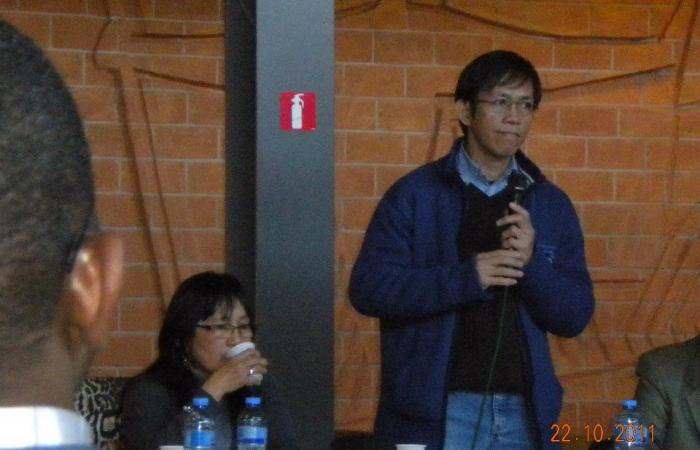June 16, 2018, marked the 7th year anniversary of the adoption of United Nations ILO Convention 189 known as Domestic Workers Convention 189 - Decent Work for Domestic Work.
A growing number of countries are taking measures to give way for more protections and rights to domestic workers since it was adopted. They have recognized the necessity to improve the working conditions of domestic workers by ratifying the Convention 189. Notwithstanding this, the Dutch parliament has remained reluctant to ratify it, though it had voted for its adoption during the ILO Conference in June 16, 2011.
This paradoxical position of the Dutch parliament on the issue of Convention 189 has not daunted the migrant domestic workers from voicing out their demand for recognition.
To drum up their voices, the FNV Migrant Domestic Workers (MDWs) Union in the Netherlands celebrated the Domestic Workers Convention Day on June 23, 2018, Gaasperplas in Amsterdam, with a short program highlighting the significance of the Convention 189 in the Netherlands.
Leaders from migrant self-organizations (FILMIS, Kabalikat, IMWU, Otradela, African Migrants Group, and MKSP) joined together in celebrating the Domestic Workers Convention Day. Herrie Hoogenboom, the Organizing Committee (OC) coordinator of the FNV, welcomed all attendees to the celebration with short remarks. He urged the domestic workers to continue their struggle in fighting for a position in the Netherlands like all workers of the world.
Francia Rodrigues, the elected chairwoman of the FNV MDWs union, advised fellow domestic workers to continue campaigning for respect and dignity as workers. Natalia Toledo, the representative of the domestic workers’ sector to the parliament of cleaners, echoed the same call for recognition of domestic workers rights.
Dan Borjal, the leader of Kabalikat and active member of FNV MDWs Union, articulated the proposed pilot project based on Geneva model during his speech. The proposal, if proved working, would give the domestic workers a strong position to lobby in the Dutch parliament for the ratification of the Convention.
The ratification of Convention 189 would elevate the position of domestic workers in the Netherlands to a category of equal footing with other groups of workers who have enjoyed social protections under the law. Besides, ratifying the Convention would benefit both the national economy and the Dutch society in general. Why?
You don’t have to be an economist to see the economic contributions of domestic workers to the Dutch society. Their number speaks itself. Approximately, around three hundred and fifty thousand people working as domestic workers in the Netherlands, and their number increases every year. This only shows an existing high demand for domestic service in the country. No question, many households really seek the services of domestic workers, because of necessity. Their domestic service frees up household families from the burden of household chores so that they can pursue their economic, educational and social activities. Hence, this symbiotic relationship necessitates proper state regulations to improve a better employment structure for the interest of society in general.
Domestic work in a private house is exceptional in nature; thus, it requires an extra-ordinary legislation. It is complex in many respects such as, among others, the multiplicity of employers, the scattered hours of work, and the issue of privacy in a workplace. All this can be addressed by Convention 189 since it has responsive provisions that can deal with the precarious situation of domestic workers.
Ratifying the Convention 189 will surely give the domestic workers a full recognition they deserve as workers and put them into the mainstream society. This issue has put considerably to test the commitment of the Dutch government to the principle of justice.
Justice will remain an illusion for domestic workers as long as the Dutch parliament does not ratify the Convention. There is no true justice when domestic workers are not given a proper recognition in society.
Now, the lingering question that confronts the Dutch policy-makers is: Is there a true spirit of justice in the Netherlands when the law only protects some, and excludes others?



Comments
brandschutzschulung münchen
brandschutzhelfer kosten
brandschutzhelfer kosten
ausbildung brandschutzhelfer dguv
schulung brandschutzhelfer
zertifikat brandschutzhelfer
brandschutzhelfer ausbilden
ausbildung zum brandschutzhelfer
brandschutzhelfer ausbildung in der nähe
wer darf brandschutzhelfer ausbilden
brandschutzhelfer kurs münchen
wer bildet brandschutzhelfer aus
brandschutzhelfer münchen
RSS